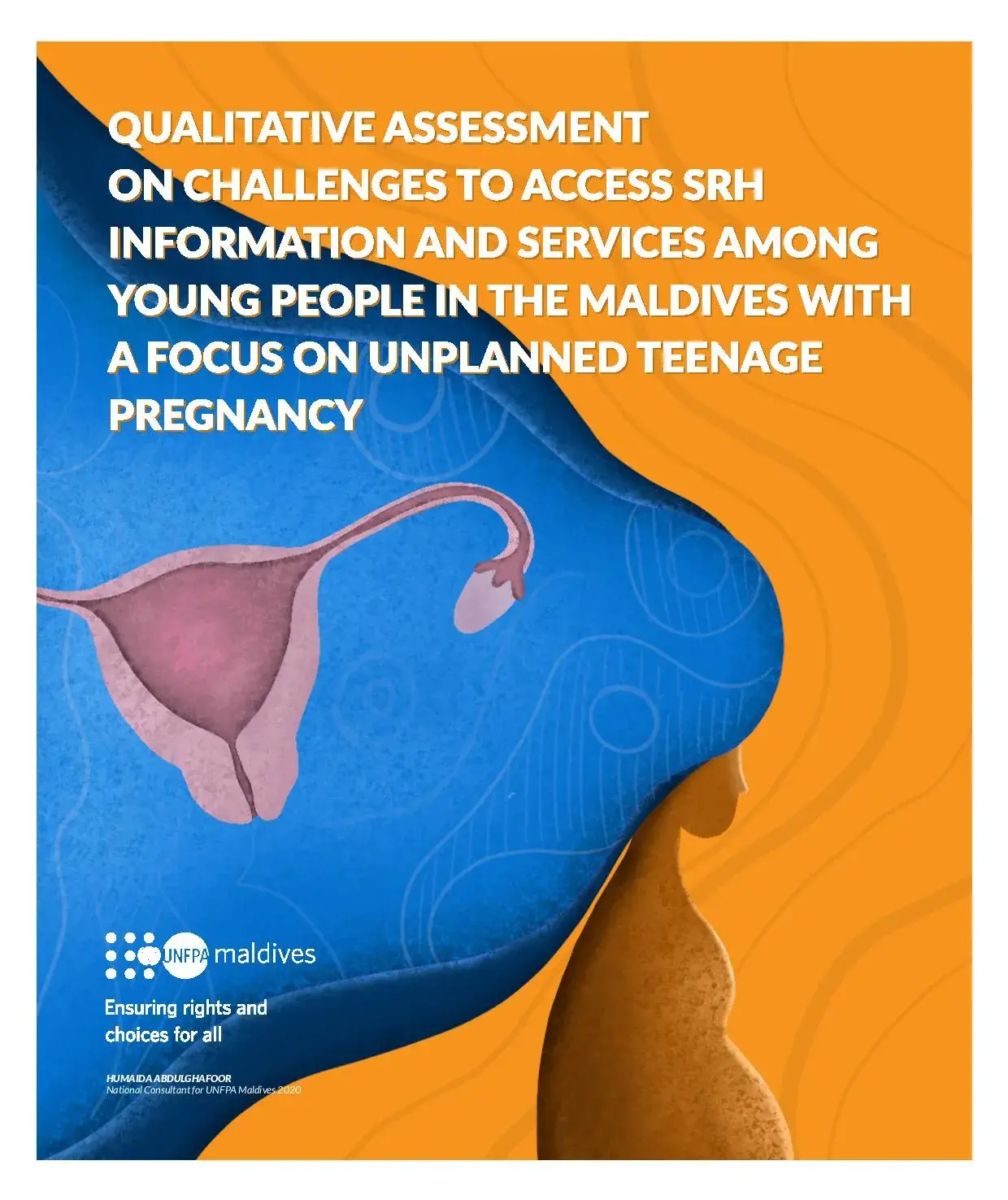This qualitative research provides an analysis of case studies of the lived experience of young people in the Maldives, affected by prevailing structural and socio-cultural barriers to access Sexual and Reproductive Health (SRH) information and services and their experience of gender-based violence in the same context.
This report attempts to analyse the findings of quantitative national surveys and the findings from available qualitative research on young people’s experiences in accessing SRH information and services in the Maldives. Some of the cases appear to be from families that are extremely marginalized, socially ostrasised and even re-victimized by elements within the larger community. It can also be observed from the cases that in several instances, unplanned pregnancy was the result of consensual sexual intimacy. The absence of policy level recognition cannot alter basic facts about adolescence, human development, sexuality and sexual behaviour. It is therefore incumbent upon policy-makers as duty bearers to address the acute gaps in SRH information, education, counselling and other support services for adolescents and young people, to limit individual suffering as well as the social and economic burden on the State to provide protection services.


